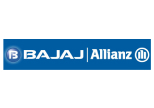Planning To Invest In Fixed Deposits? All You Need To Know About FDs
Table of Contents
Fixed deposits (FDs) are one of the most popular investment tools in our country, especially among risk-averse investors such as senior citizens, due to their guaranteed returns, varied tenure options, and high liquidity. Fixed deposit accounts are offered by all scheduled commercial banks, as well as several NBFCs and HFCs in India. You should check the ratings of the financial institution issued by organisations such as CRISIL before investing in FDs provided by an NBFC or HFC to ensure that your funds are secure.
What are Fixed Deposits?
Banks and other financial institutions provide fixed deposit accounts as an investment option. Investors would deposit a big sum over a period of time into this account. In exchange, customers would get a fixed rate of interest for the duration of the investment. The interest rate on a fixed deposit is significantly higher than the rate on a normal savings account. At the end of the deposit's term, investors can withdraw their funds. They can, on the other hand, reinvest their money over a longer period of time.
What are the Features and Benefits of Fixed Deposit Accounts?
Here is the list of features and benefits of a fixed deposit account.
- Eligibility Criteria - Individuals who are Indian residents, senior citizens, minors, blind, illiterate, religious and educational institutions, companies, societies, trusts and clubs etc., can apply for a fixed deposit account. There could be other bank-specific criteria.
- Investment Tenure - The investment duration of FDs varies with the bank and ranges from seven days to ten years. If investors invest for a longer length of time, they will get bigger returns.
- Investment Returns - Compound interest accelerates the growth of your investment. The return on investment (ROI) is compounded on a monthly, quarterly, or annual basis. Returns are guaranteed because they are not linked to market highs and lows like mutual funds.
- Withdrawals - Premature withdrawals are permitted, ensuring that you will always have a fund to fall back on in a crisis. However, partial and early withdrawals may have penalties.
- Security - The investment is safe as the Reserve Bank of India (RBI) regulates banks and other financial entities.
Must Read: How Much Term Insurance Cover Do I Require?
- Tax Benefits - When you invest in a tax-saver FD scheme with a minimum lock-in term of five years, you can claim a tax deduction of up to Rs.1.5 lakh under Section 80C.
- Easy Liquidity - Although the account has a lock-in period, you can liquidate the investment at any time. The lock-in period is not as long as it is for other investment instruments.
- Loan Against FD - It is possible to get a loan against your fixed deposit account.
How Can You Open A Fixed Deposit Account?
Fixed deposit accounts are available both online and offline. The general procedure is as follows.
- Offline Mode
- Pay a visit to the bank or financial institution's nearest branch.
- Request an FD application form and fill it out completely with the necessary information.
- Attach the requested documents to the application form, such as evidence of identification and address, and submit them at the counter.
- Please provide a check or cash for the amount you wish to invest.
- Your application will be processed and your account will be opened according to the bank/financial institution's deadlines.
- Online Mode
- Log in to your chosen bank's online banking account.
- Look for the option to "Open a Fixed Deposit Account" among the available options and select it.
- Fill in the essential information on the online application form.
- All needed papers should be uploaded as soft copies.
- If applicable, mention a nominee for the maturity amount.
- Complete the application and transfer the cash you want to invest.
Take Away
Fixed deposit accounts are a great option for those who don't want to take any risks with their money. FD accounts are a good option if you want to keep your money safe over time and aren't interested in building your wealth or getting consistent returns. Many retirees who receive a lump sum after their retirement deposit it in FD accounts so that the monthly interest distribution can be utilized as spending money. You can also set aside a lump sum for the benefit of your children or minors, which they can use for higher education at a later period. If you want to develop emergency money, you can also use FD accounts.
Also Read: All About MyLife Protection Plan
Disclaimer: This article is issued in the general public interest and meant for general information purposes only. Readers are advised not to rely on the contents of the article as conclusive in nature and should research further or consult an expert in this regard.









































